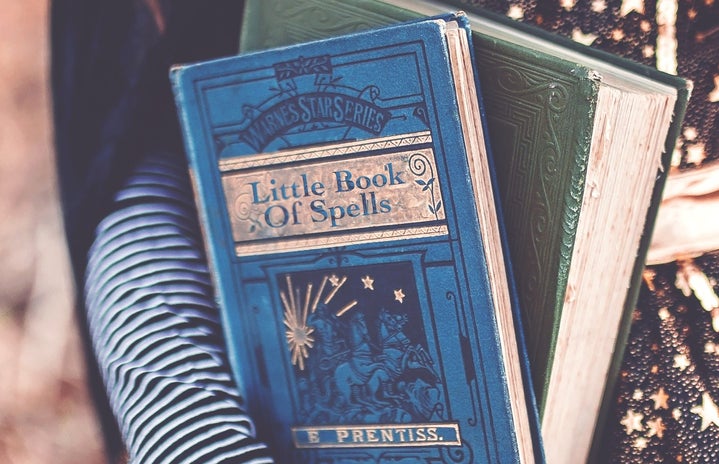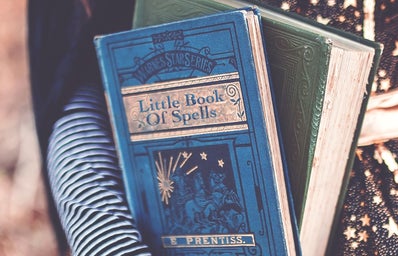So, we’re all stuck at home, might as well pick up a new hobby, right? Well, while tarot isn’t necessarily a hobby, it’s definitely on trend, and is a worthwhile tool to help strengthen our intuition and higher selves. Witch blogs everywhere get the same handful of questions from people curious about tarot or novices nervous about that first deck. Enter your local witch to get these answered for you!
First things first, what is tarot? Why is tarot? It originated as a 14th century card game in Italy, played in the same way as any gambling card game, but with the stakes of one’s fortune instead of money. Today, it’s a form of divination that focuses on making the connection between one’s hidden intuition and the easily accessible conscience. In truth, ALL divination works like this, it’s a practice in strengthening your intuition and ability to seek guidance with the grand metaphysical ideal of karma. This is also what’s used when people give readings for others, it’s a collaboration of sorts.
Do you have to buy your own deck?
Unless you were raised in the craft (in which case, you definitely don’t need this guide) not at all! It’s entirely up to you whether you want your first deck gifted or bought with your own money. You can also forgo having physical cards and use apps, too, which I would recommend for novice learners because you can journal readings and reference cards and spreads easier, and also because they’re usually free. Worthwhile tarot decks aren’t exactly cheap.
What’s the Major Arcana and what do we use it for?
The major arcana is a group of 22 cards numbered 0-21 (confusing I know, but for now just think 21 cards + 0) that are numbered by roman numerals (I, II)–though some card designs have regular numerals (1, 2). In a nutshell, they’re the poster cards of tarot! The major arcana is mainly for general readings (like yes/no, singular questions, large time related questions) and represent life stages and personal journeys like love, life/death, youth and old age, celebration, balance, intuition, and above all transformation and self-actualization. They’re the spiritual truths of the universe. Think major arcana for major life choices.
What about Reversals? Do they matter and do I have to use them?
A reversal is when, as you’re flipping the cards over to start a reading, one is upside down either from the point of the reader or the point of the person being read. Using reversals is also a personal preference! They add another layer of complexity to readings and can show an excess or lack of what the card stands for. However, it’s also another layer of difficulty to learn. I personally recommend learning reversals but not using them until you’re comfortable understanding and reading the cards upright. Taking steps to learn things is important so as to not overwhelm you. So, if you get a reversed card in a reading, either turn it over and read it upright, or consult a guide book instead of trying to read it on your own, at least until you feel ready to take it on yourself, and once you are, then definitely incorporate them into your readings, you’ll get a more complete answer that way.
What’s the Minor Arcana and what do we use it for?
The minor arcana is 56 cards split into 4 suits of 14. The suit cards are numbered from the Ace (1) to 10, then have 4 court cards (Page, Knight, Queen, King). These suits are the Swords, the Cups, the Wands (sometimes called spears or staffs) and the Pentacles (sometimes called Coins). The minor arcana is for the daily affairs of a person, and so are much more versatile in readings (they can be used daily or weekly, for more in-depth readings regarding short time, for relationships, and sometimes yes/no). If the Major arcana are big concepts that are universal, the minor arcana are the details of those concepts that, while also universal, can be personalized to the reader or the subject. They give deeper clarity to the mess of everyday, what we perceive in the moment. Together, the major and minor arcana work together and balance each other out. Again, I would recommend getting comfy with the major arcana before looking into the minors, but overall, definitely use both sets to get a fuller picture during readings. Fun fact, the minor arcana was developed by using numerology and the four elements to assign meanings to each card!
I have a deck, but it’s not traditional and I can’t understand it, what do I reference?
You can never go wrong with the Rider-Waite deck for referencing! Some decks are modernized and so have a minimalist aesthetic, or have changed out certain cards for others. When in doubt, first turn to your deck’s guide book, and if still in doubt, go for a Rider-Waite guide. I personally think this should be every novice’s first deck, whether in app form or physical. This one rule holds true over all else: practice, practice, practice!
What are some spreads to try?
Firstly, a spread is a formation that you lay your cards in to answer a certain question. Some are circular, some are linear, and some are complex (like the Celtic Cross, for example). Each position has a meaning that the card represents, and you combine the positions with the card’s meaning to get an answer. Two rules of thumb: start small, and read often! Here are some easy spreads to get comfortable with, especially for the Major Arcana:
A daily single card: To keep in mind throughout the day and reflect on or to answer a yes/no question.
Past, Present, Future: A 3 card spread based on a single decision or dilemma, a decision made in the past, what’s the most important for you to consider now, and the signs of this coming up again in the future.
Two cards: Multiple uses, can be for what to do/what not to do, choosing between two options/people/etc, or can be read together for detailed insight over one dilemma.
No matter how new you are to tarot, or whether you want to make it an integrated part of your witchy practice or just want to dabble, make sure to journal, take notes, and get a feel for how your deck communicates: if it’s blunt, if it’s tactful but still clear, or if it’s a little all over the place! The more you use your deck, the more intuned you’ll become with it, and the more accurate your readings will be. Happy divining, witchlings!


